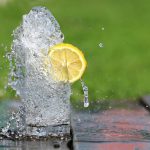Who gets my Tip? Tips on Restaurant Tipping
Who gets my Tip? Tips on Restaurant Tipping
Have you ever wondered if your waiter or waitress actually gets to keep the tip you gave? Rightfully so, many patrons assume that your waiter or waitress gets to keep the full amount of the tip; after all, federal law says that your waiter or waitress gets to keep their tips. In this article, I am going to give some tips on restaurant tipping.
As the holidays are upon us, many of us may feel the urge to be more generous and thoughtful during this season. As you’re having lunch or dinner at your favorite restaurant, you may notice your waitress looks overworked and is struggling to make-ends meet or has picked up an extra shift to earn some extra cash so she can afford to buy her child a present. What you may not realize is that many restaurants only pay their waiters and waitresses a direct wage of $2.13 per hour.
That’s right! $2.13 per hour! Generally, waitstaff at restaurants never take home a paycheck from their employers; meaning their only hope of taking home any money comes from the tips left by patrons. Therefore, ensuring that your tip or gratuity ends up in the pocket of your waiter and waitress is critical to their ability to make ends-meet – in fact it’s likely the only money they will get to take home.
Nevertheless, many restaurants choose to take (illegally) a portion of its waitstaff’s tips in violation of federal law. Having represented many waiters and waitresses in tip theft lawsuits, I am in a unique position to opine on the best practices and ways to ensure your tip goes to and remains with the person you intend – your waiter or waitress.
Tip Your Waitstaff in Cash as Opposed to Tipping on a Credit Card
First, tip your waitstaff in cash instead of leaving it on the check. An expert once told me, cash does funny things to people – even to the wealthiest of people. I am constantly reminded of this when I see business owners who have made millions of dollars, stealing a few hundred in cash from their waitstaff. To combat this, if you tip in cash, it puts your waitperson in a much better position to control what happens with their money. Otherwise, they are left to the mercy of the restaurant to accurately track the tips they earned and to remit that payment to them – sometime several days after you have left the restaurant.
Also, many restaurant owners require their waitstaff to pay for the credit card processing fees – the cost to process the credit card tip. Moreover, some of these restaurants illegally deduct an “accounting fee” or other fee to process their waitstaffs credit card tips. Given all of the above issues with tipping on a credit card, it is best to tip in cash, giving your waiter or waitress better control of their money – ensuring that it goes into their pocket instead of the pocket of the restaurant.
Illegal Tip Pools
Second, while the law does state that a waiter or waitress gets to keep all the tips they earned, there is one small caveat; an employer can require waiters and waitresses to pool their tips. However, the tip pool must meet all the requirements under the law. The kitchen staff, dishwashers, other back of the house support staff, management, and owners may not receive any money from the tip pool. However, other waitstaff, hosts, and bartenders may legally share in the tip pool. You may be wondering why the kitchen staff cannot share in the tip pool – well because by law, the restaurant must pay back of the house staff more than minimum wage whereas restaurants often pay (legally) waitstaff $2.13 per hour.
I have seen instances where the restaurant owner takes a “house fee” off the top of the tip pool or where salaried-managers take a cut of the tip pool. It is patently unfair (albeit illegal) to require someone earning $2.13 per hour to share their tips with someone who earns much more per hour without tips.
Tip Deductions for Wrong-Ordered Food
Third, unless your food is completely screwed up, do not return it, not just because it may irritate your waiter or waitress, but because some restaurants require their waitstaff to pay for returned food. That’s right, even if a patron returns their food due to no fault of the waiter or waitress, some restaurants will illegally require their waitstaff to pay for the returned food out of their tips. I have seen this occur on several occasions and was actually an issue in illegal tipping case I had against a well-known Texas restaurant. In some of these cases, after paying for the returned food items, your waiter or waitress may end up paying to wait on you if your tip doesn’t cover the cost of the returned food.
Be a Star Tipper!
In sum, waiting tables for a living is hard work and even more difficult if the restaurant is illegally stealing its waitstaff’s tips. As a patron there are little things you can do to ensure that your tip is going to and staying with the right person. Next time you are dining out, hopefully, you will have a little better understanding of how the restaurant tipping process works. Happy holidays and don’t forget to tip your waitstaff!





